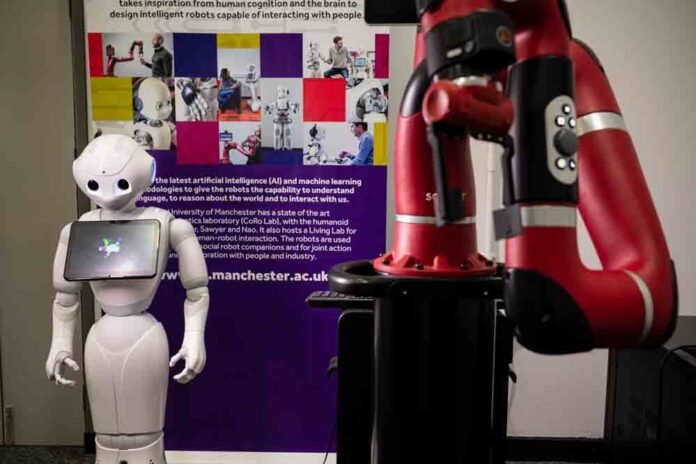Textile is perhaps the only industry where robotic use is minimal. Efforts to introduce a robotic stitching machine replacing humans have been partially successful. A US$5 million micro-scale robotic fashion production in England might break the robotic draught.
This facility aims to explore more sustainable approaches to fashion manufacturing. The Robotics Living Lab (RoLL), will support micro-scale fashion businesses using robotic technologies for more sustainable production. It is being developed at Manchester Metropolitan University’s Manchester Fashion Institute.
Manchester once used to be the textile center of Europe before the shifting of most of the textile manufacturing to Asia. Fashion researchers, designers, and manufacturers will be able to use RoLL to collaborate and make use of robotic technologies with a focus on creating high-value, low-volume fashion production in the UK. Stress on low volumes is in line with the European strategy of reducing volumes to avoid wastage.
The robotic technology of the lab will conceive, test, and develop new tooling solutions – creating new stitching, cutting, pressing, and repair tools. This will support small fashion design businesses in using innovative manufacturing processes for more sustainable production.
The facility will support Greater Manchester Combined Authority’s 2038 target for net zero manufacturing. The funding is a part of £103 million announced by the Science and Technology Secretary for digital research and infrastructure.
Two office spaces in the Manchester Fashion Institute will be repurposed and equipped for the Robotics Living Lab, comprising a robotics lab and a working area. It is expected to be completed by the summer of 2024.
A Professor of Fashion at Manchester Fashion Institute said the lab will enable fashion designers and manufacturers to work together using cutting-edge technology. It will help and facilitate micro and SME businesses. It is expected to impact positively on the industry.
The lab will be equipped with ‘cobots’ – collaborative robots designed in collaboration with fellows of a co-design residency program to develop interchangeable stitching, cutting, pressing, and repair tools. These ‘cobots’ will work alongside humans, with new end effector tools – devices used by cobots to perform a task.
The lab is situated Situated at a prominent space within the Fashion Institute and will be accessible to fashion students and researchers at the University alongside small businesses. RoLL is designed to challenge the way fashion is traditionally operated. It would lead the way in helping to transform a sustainable future for the fashion manufacturing industry.



